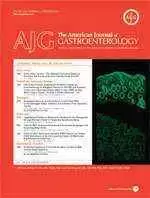Celiac.com 06/18/2009 - According to the results of a recent study, complete recovery of intestinal mucosa occurs very rarely in patients with celiac disease, despite adherence to a gluten-free diet.
Generally, when people with celiac disease go on a gluten-free diet, they can expect to enjoy some healing of small intestinal mucosa. However, new data casts doubt over how much of this benefit is experienced in adult celiac patients.
Celiac.com Sponsor (A12):
In order to analyze the factors that influence histological outcome of a gluten-free diet in a large cohort of adult celiac patients, a team of researchers reviewed data on 465 consecutive celiac patients studied before and during the gluten-free diet.
The team was made up of A. Lanzini, F. Lanzarotto, V. Villanacci, A. Mora, S. Bertolazzi, D. Turini, G. Carella, A. Malagoli, G. Ferrante, B.M. Cesana, and C. Ricci. The researchers made duodenal biopsies of subjects at diagnosis, and classified results. They found 11 cases of Marsh I, 25 cases of Marsh II, and 429 cases of Marsh III.
After an average of 16 months on a gluten-free diet, 38 patients (8%) showed histological ‘normalization’, 300 patients (65%) showed ‘remission’ with persistent intraepithelial lymphocytosis, 121 patients (26%) remained unchanged, while 6 patients (1%) showed ‘deterioration’.* Celiac disease-related blood tests were negative in 83% of patients with Marsh III lesion during the gluten-free diet.
Researchers independently associated male gender and adherence to a gluten-free diet with histological ‘normalization’ and ‘remission’. There seemed to be no association between persistence of intraepithelial lymphocytosis and human lymphocyte antigen gene dose, or with Helicobacter pylori infection.
From these results, the research team concluded that complete normalization of duodenal lesions is exceptionally rare in cases of adult celiac disease despite adherence to a gluten-free diet, disappearance of symptoms, and negative blood tests for celiac disease.
Aliment Pharmacol Ther 29, 1299–1308
*Author's note: Could such deterioration be due to undetected exposure to gluten over time?










Recommended Comments